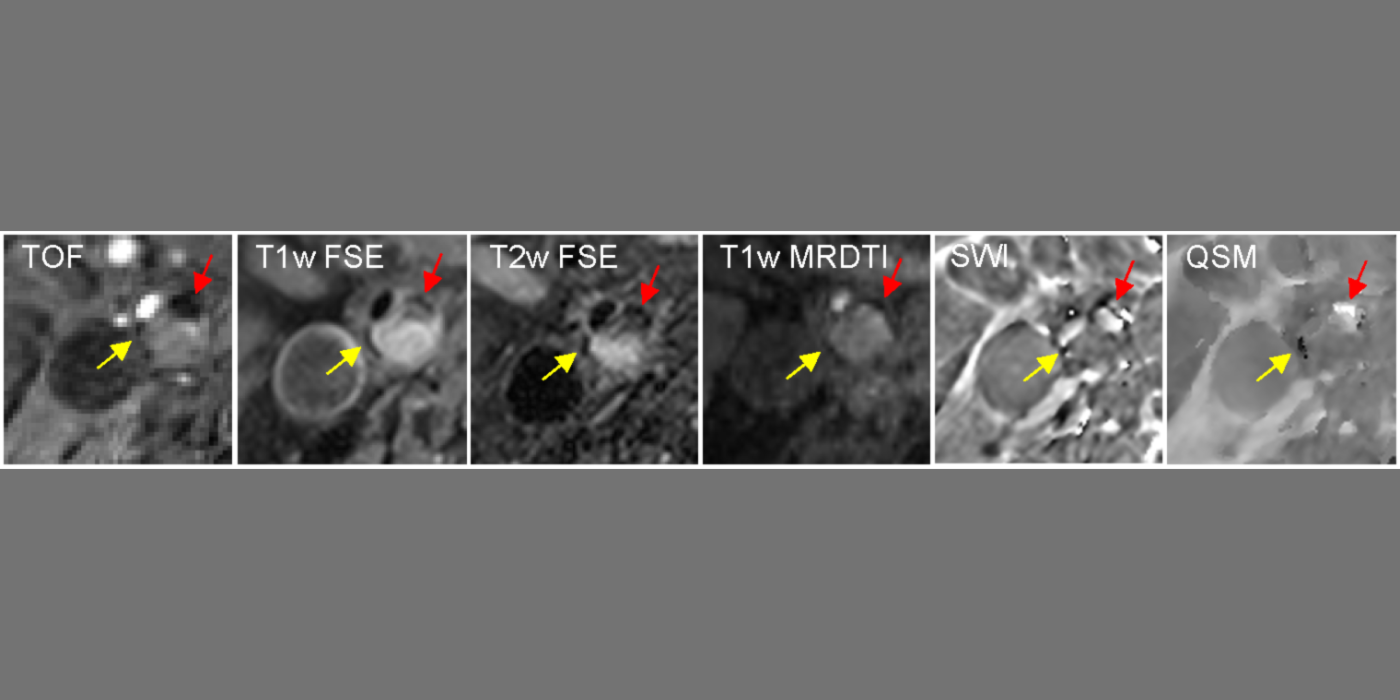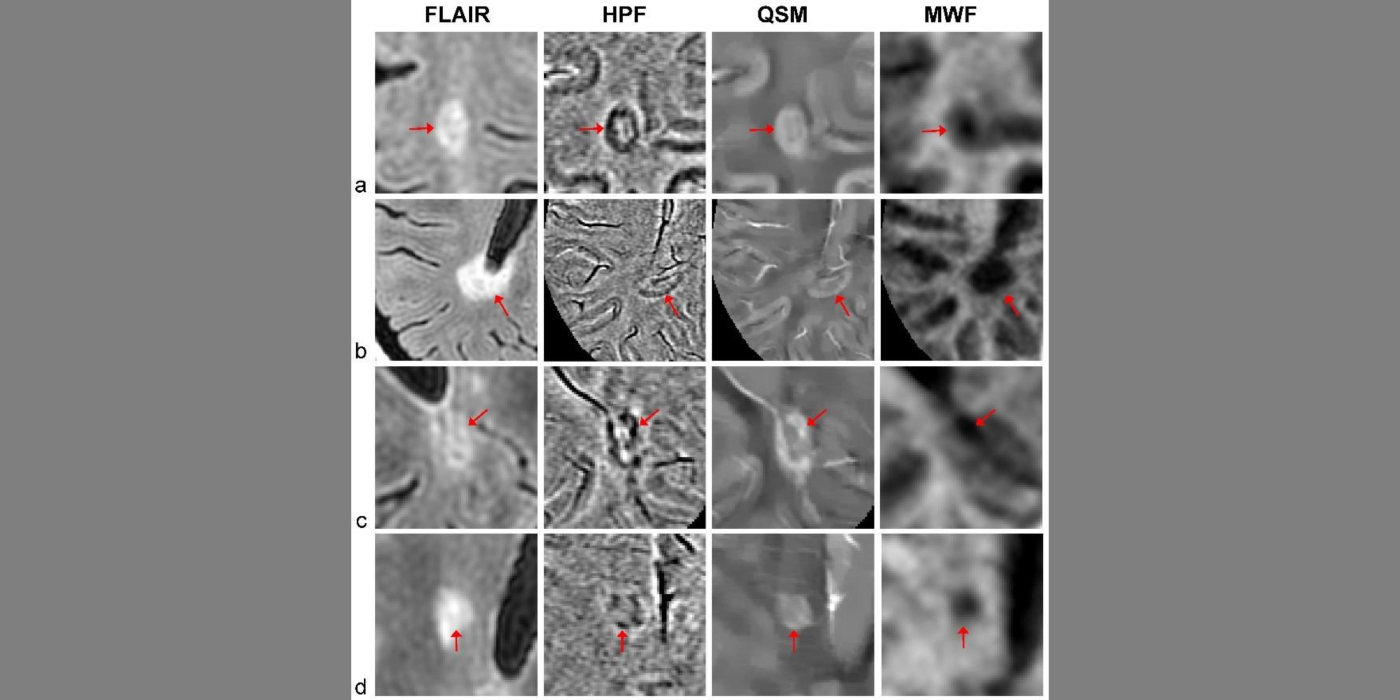
Quantitative susceptibility mapping of carotid intraplaque hemorrhage
Carotid plaque multi-contrast magnetic resonance imaging with hypointense areas (arrows) may reveal intraplaque hemorrhage (IPH) hemosiderin, not calcification.

Quantitative magnetic resonance imaging of lesion iron/myelin repair
Chronic multiple sclerosis lesions with full/partial paramagnetic rim appearance on high-pass filtered (HPF) phase and quantitative susceptibility mapping (QSM) images, and myelin loss, measured by myelin water fraction (MWF) mapping.


